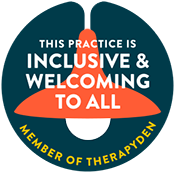Why Some Adult Children Idolize Their Abusive Parents (and How to Move On)

By Brenda Stephens, LPCC
The relationship between parents and their kids can be really complicated. For many adult children, there’s a strange feeling of putting their abusive parents on a pedestal—something that might seem confusing at first. In this post, we’ll look at why this happens and how to break free from it.
Why Do They Idolize?
1. Coping Mechanism: Many adult children of abusive parents find themselves looking up to their parents as a way to cope with the pain.
It’s easier to pretend things aren’t that bad than to face the hurt directly. This kind of thinking helps them hold on to a connection with their family, even when it’s painful.
2. Cycle of Abuse: Abuse often repeats itself. When a child grows up around neglect or mistreatment, they might start to believe that their parent was just doing what was necessary. This makes it hard to accept the bad stuff that happened, so they choose to focus on the good times, leading them to admire the parent.
3. Social Pressure: Society tells us that we should respect our parents no matter what. This can lead people to ignore their own bad experiences and think idolizing their parents is the right thing to do. Friends and family can reinforce this idea, making it harder to recognize the truth about the abuse.
4. Fear of Change: Denying the truth about their abusive parents can feel like losing a part of themselves. Adult children may think that if they let go of the idealized version of their parents, they will lose their own identity. This fear keeps them stuck in the cycle of idolization.
How to Break Free
Understanding why you might idolize an abusive parent is just the start. Here are some steps to help you move on:
1. Talk to a Therapist: Getting help from a professional can make a big difference. A therapist who understands family issues can help you make sense of your feelings and experiences. It’s a safe space to explore your hurt and find ways to heal.
2. Learn About Abuse: Understanding how abuse works can help you see your situation more clearly. Learning about the patterns of abuse can validate what you feel and empower you to make better choices in your life.
3. Set Boundaries: It’s vital to create boundaries with your parent. This could mean spending less time with them or keeping certain topics off-limits. Make it clear what you need, and remember that taking care of yourself comes first.
4. Find Support: Look for groups where you can share your experiences with others who have been through similar things. Talking to people who understand can help you feel less alone and more accepted.
5. Be Kind to Yourself: It’s important to recognize your own pain and allow yourself to grieve. Be gentle with yourself as you work through these feelings. Choose activities that make you feel good and help you relax.
6. Change the Story: Start to rethink how you see your parent. It’s okay to recognize the good times, but it’s also crucial to understand that hurting others is not acceptable. Try to form a balanced view of your parent as both human and flawed.
Conclusion
Idolizing an abusive parent can be confusing and painful. By understanding why this happens and taking steps to heal, adult children can begin to break free from this cycle. Embracing your feelings, reaching out for support, and focusing on your growth can lead to healthier relationships and a stronger sense of self.






